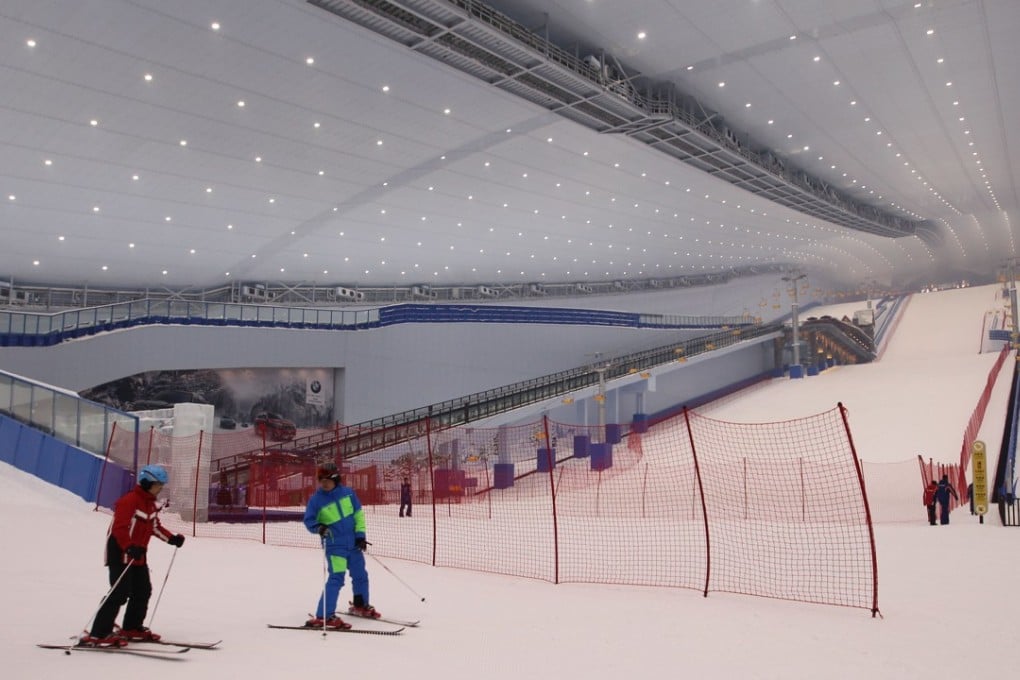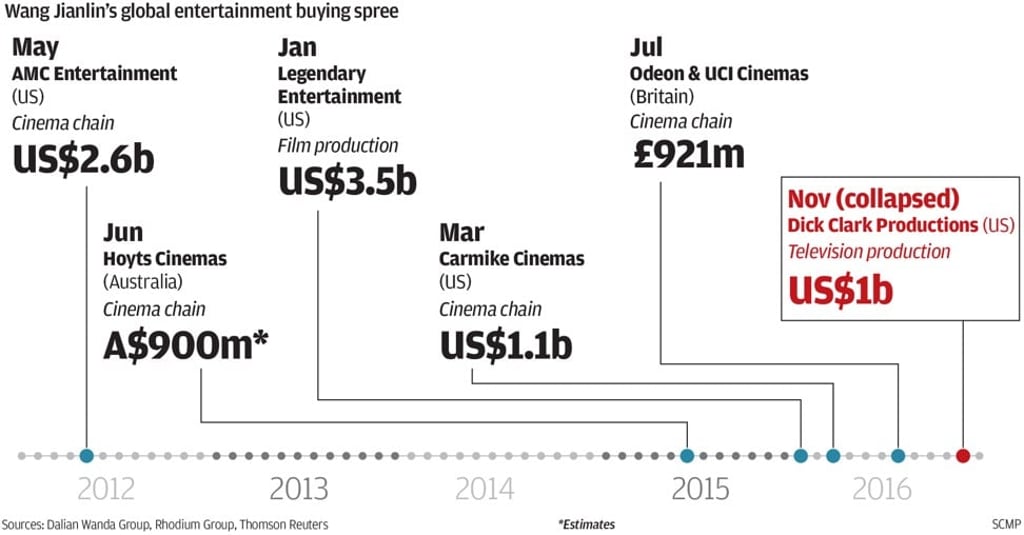China’s richest man builds world’s biggest indoor ski resort, giving Harbin year-long winter
Wang Jianlin made his first public appearance since Wanda Group was named on June 22 among several global asset buyers in a probe by the Chinese bank regulator. No wrongdoing was indicated

Harbin Wanda City, the US$6 billion resort development built by China’s wealthiest tycoon Wang Jianlin, opened for business on Friday, the conglomerate’s sixth theme park as it pushes further into the country’s leisure and entertainment industry to compete with Disneyland and Universal Studios.
Located in the city -- near the country’s northern border with Russia -- with China’s longest and harshest winter, the resort features Russian architecture, a movie cineplex and a grand piano-shaped indoor ski resort that allows 3,000 people to ski or snowboard on six runs, all in an area covering 1.6 square kilometres. Up to 30,000 people will be hired to work in the resort when its completed, Wang said.
“Harbin is known as the city of ice, which also happens to be the main theme of this resort, so we will together provide winter sports throughout the year,” Wang said.
Skiing is gaining popularity in China, as the country prepares to host the 2022 winter Olympics in Zhangjiakou near Beijing.
Several ski resorts already exist in northeastern China. Yabuli, about 180 kilometres from Harbin, already has a ski resort that hosted the Winter Asian Games as early as 1996. Wanda operates a ski resort at Changbaishan in nearby Jilin province.
